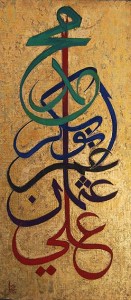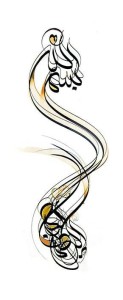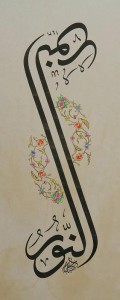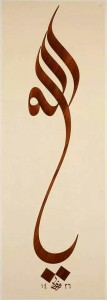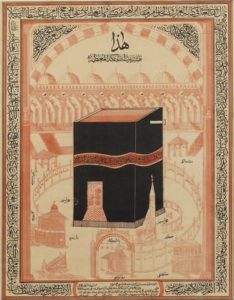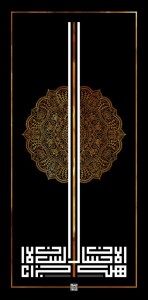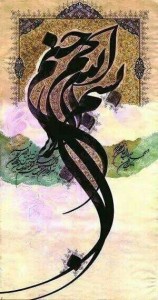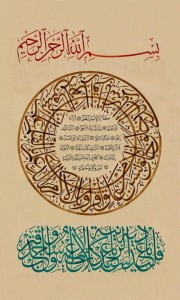The Question Of The Ship and Torture
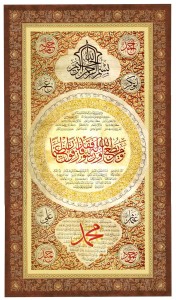 “Three hundred people were in a boat sailing on the sea. They realized that their safety was at risk, and the lives of the majority could only be saved by throwing 10 people overboard. Would it be morally right to kill 10 people in order to save 290?”
“Three hundred people were in a boat sailing on the sea. They realized that their safety was at risk, and the lives of the majority could only be saved by throwing 10 people overboard. Would it be morally right to kill 10 people in order to save 290?”
“Would you torture one person to save the lives of many?”
In most cases prisoners of war do not have nuclear launch codes to a dirty bomb or are even in a situation were America is held to ransom, most are simply soldiers with information the American military needs in their wars, so the two cases that of the ship and prisoners of war are relatively similar.
Based on the Maqasid (Objectives) of Shariah Imam al-Ghazali said regarding his example of the abandoned ship, that it is morally wrong to kill some people in order to save others.
Why?… Imam al-Ghazali gave three reasons against the justification of killing in this case:
1. Universality: the benefit of people, in this case the majority, is not a universal benefit, it is only the interest of a small community who are going to use others as means to their end (while the moral ramifications of such actions are universal on that society).
2. Necessity: the benefit of those people on the boat is not necessary to a degree to break another necessity and kill humans.
3. Certainty: we are not certain that killing those people is going to save the rest. What if they killed them and after that they faced another problem at sea, should they kill another 10 people to save the rest? This is morally unjustifiable and becomes out of control.
In Islam the life of every single human is unique and precious; it is one of the five necessities of Islamic law and must be preserved and protected. Allah commanded Muslims in the Qur’an that killing is prohibited, and to kill one soul, in Allah’s judgement, is like killing the entire human race, and to save one soul is as if you saved the entire human race, so then how can you kill the entire human race and place that moral burden on society to simply save a small group of people or community.
When Allah takes account for peoples actions each life taken will then weigh as the entire human race on the day of judgment along with it’s retribution.
Two moral realities can be derived from the example above, consequences regardless of how they seem do not justify such immoral acts. And the end result, no matter how immediately beneficial to us, do not justify the means by which we achieve them. Even if gain is achieved it is temporary and the consequences we would face later and with Allah would be more severe as our actions are ultimately unjustifiable.
When Allah created man he said to the Angels he was placing a Khalifah on earth. Allah’s Khalifah means Allah’s representative and vicegerent, who takes care of affairs on behalf of Allah, this position is entirely in relation to mankind’s sovereignty over not just mankind but other creatures on this planet, and to help us understand what we are responsible for and to what extent, Allah revealed to man the many books of revelation and Religion as a whole.
Allah asks us to be mindful of his creatures and to pay attention to them: “And there is no creature on He asks us to be mindful of what we kill, then instructs us to not overstep these limits and destroy entire species: “Eat and drink from the provision of Allah, and do not commit abuse on the earth, spreading corruption.” (Qur’an, 2:60) He asks us to look after the atmosphere, be mindful of its state and not to destroy it; “And We made the sky a protected ceiling (canopy), but they, from its signs, are turning away.” (Qur’an, 21:32) He asks us not to waste what has been placed on earth and be excessive in what we take: “But waste not by excess: for Allah loveth not the wasters” (Quran 6:141) He asks us to look after the balance of nature and this earth: “And He has raised the heaven and set up the balance, [declaring] that you should not contravene with regard to the balance. And observe the measure with justice and do not skimp the balance. And the earth, He placed it for [all] creatures. In it are fruits and date-palms with sheaths, and grain with husk, and fragrant herb (don’t even harm these). So which of your Lord’s favours will you deny?” (55:7-13) So then what of Human life itself by comparison when we will even be accountable for the life of animals, plants, ecosystems and the atmosphere, people who ask these questions in order to tempt a morally bankrupt outcome have already lost their compass and balance, they’re now simply looking back at humanity and wondering, what was once there and what is it all worth ?


